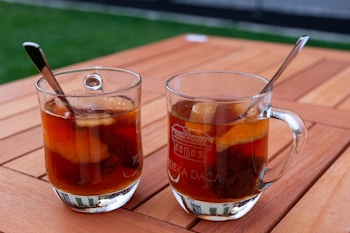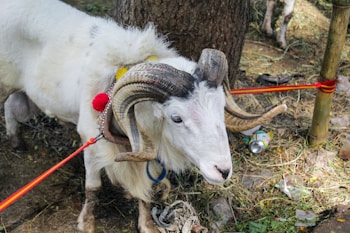 French Slang Learning Guide
French Slang Learning Guide
A collection of commonly used French slang words and phrases to enhance your conversational skills.

Dépenser une meilleure vie
In French, 'Dépenser une meilleure vie' conveys the idea of utilizing resources such as time and money to improve one’s quality of life. The term 'dépenser' generally means 'to spend' and is often associated with financial resources, but when paired with 'une meilleure vie', it implies a broader concept of investing one's efforts and means into experiences, opportunities, and choices that enhance overall well-being.

Mec
The French word 'Mec' is used colloquially, similar to 'Dude' in English. It can be used to refer to a man or boy in a casual context. However, just like 'Dude', it should be used appropriately considering its informal and figurative nature.
Example sentences with Mec →
Quelle vague
In French, 'Quelle vague' directly translates to 'What wave' in English. It may be used as a question inquiring about a specific wave, such as a wave in the ocean or a wave of emotions. It can also be used when expressing surprise or disbelief about a significant, usually negative, event or phenomenon.
Example sentences with Quelle vague →
Regarde ça
Regarde ça is often used to attract someone's attention to something. It is an informal way of saying Look at That in French.
Example sentences with Regarde ça →
aller dans un autre quartier
The French phrase 'aller dans un autre quartier' translates to 'go to the other neighborhood' in English. It is used to indicate the action of moving from one residential area to a different one, often implying a change in location for the purpose of visiting, exploring, or engaging in activities. In conversational French, this expression may be used in various contexts, such as planning a visit or discussing travel between different parts of a city.

cool
In French, 'cool' is used similarly to English, as an adjective to describe someone or something that is impressive, enjoyable, or likeable. Though it's originally an English term, it's commonly used in informal French conversations. Note that its pronunciation in French is similar to the English pronunciation.
Example sentences with cool →
jambe
The French word for 'leg' is 'jambe'. It is used in the same way as in English: to describe the part of the body from the hip to the foot. It is also used in various phrases and expressions, such as 'avoir les jambes en coton' which translates to 'to have legs of cotton', meaning to feel weak.
Example sentences with jambe →
ouais
The French word 'ouais' is often used as an informal or slang way to say 'yeah' in English. It is usually used in casual conversation and is equivalent to saying 'yes.' However, it is less formal than 'oui,' the standard French word for 'yes.'
Example sentences with ouais →
perdre son sang-froid
The phrase 'perdre son sang-froid' in French is used to describe a situation where someone suddenly loses their temper or composure, often in response to a frustrating or unexpected event. It captures the essence of becoming irrationally angry and no longer being able to control one's emotions.

quoi de neuf
In French, 'quoi de neuf' is a casual greeting typically used among friends. It translates literally to 'What's new?' in English, but is used more often in the same ways as English speakers would use 'What's up?'. This phrase is informal so it should not be used in formal or professional situations. It can also be a way of asking someone 'What's happening?' or 'What's going on?'
Example sentences with quoi de neuf →
ressembler à
In French, 'ressembler à' is used to express resemblance or similarity between two entities. It can indicate that one person or thing looks like another, as in physical appearance or characteristics. This phrase is commonly employed in conversations to make comparisons or when describing someone's likeness to another person.

transpirer comme un poulet
The phrase 'transpirer comme un poulet' is a colloquial expression in French that means to sweat profusely due to heat or nervousness. It paints a vivid image of a chicken, which is often perceived to be in distress when overly hot or frightened, thus effectively conveying the intensity of sweating in various situations.

être comme un chèvre
The phrase 'être comme un chèvre' can imply being stubborn or lively, as goats are often seen as headstrong animals. In French culture, goats symbolize independence and agility, and the expression might be used to describe someone who is acting in a fearless or unconventional way.